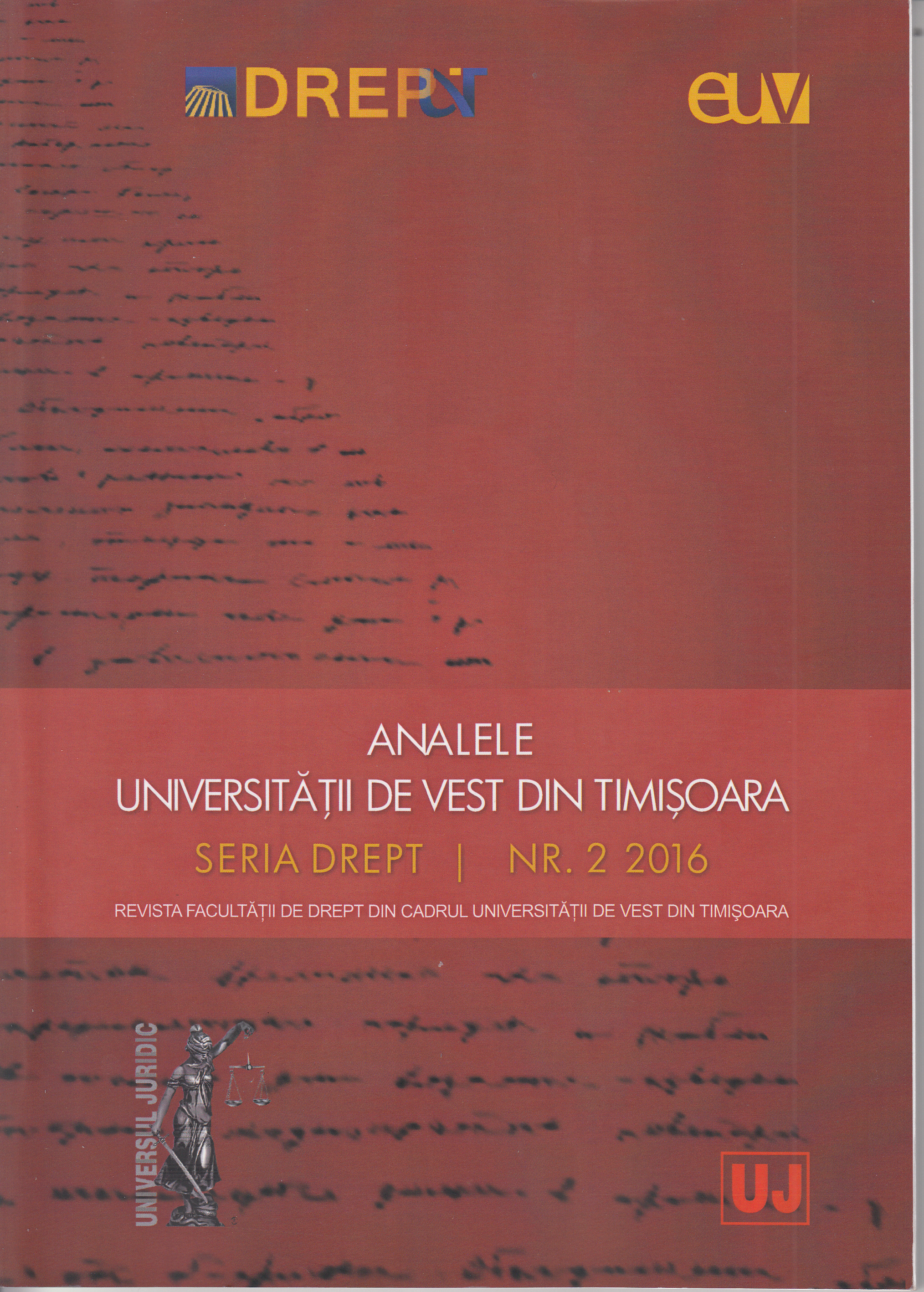Prezenţa fundamentelor ideologice ale dreptului administrativ în discursul teoretic al germanului Ernst Forsthoff
The Presence of the Ideological Fundamentals of Administrative Law in German theoretical discourse Ernst Forsthoff
Author(s): Cristian, Violeta Clipa, StratanSubject(s): Law, Constitution, Jurisprudence
Published by: Universul Juridic
Keywords: German administrative law; ideological foundation; ideology; terminology; public administration; public authority; public service; public interest; public power; public domain; administrative act
Summary/Abstract: The whole institutional structure of administrative law is built around five ideological foundations which, in our view, are the following: public administration, public authority, public service, public interest and public power. In other words, we consider that with the help of these five concepts, it is possible to define and describe all the major institutions of administrative law, namely: the civil service, the public domain, the public enterprises, the administrative acts, the administrative contracts, the administrative litigations and issues concerning the public authorities’ patrimonial liability for damage caused by their illegal acts. The presence of these ideological foundations of administrative law in the French, Spanish, Italian, Portuguese and Romanian doctrine can hardly be denied. The public law literature in all these countries constitutes powerful evidence of the validity of our previous assertion. In this rather short paper, we aimed to determine whether, and to what extent, the five ideological foundations of administrative law can be identified in the German doctrine as well (in fact, in the Western Germany legal literature), and if they are given the same meanings and values as those attached to them in the legal literature of Latin origin. In achieving this goal, we chose to refer exclusively to the German administrative law treaty written by Ernst Forsthoff (1902-1974), this choice making our study an apparently (but only apparently!) incomplete one. We totally agree with the fact that a complete (or at least sufficiently detailed) study of the German classical administrative law literature could not leave aside the work of jurists such as Paul Laband (1838-1918), Otto Mayer (1846- 1924), Fritz Fleiner (1867-1937) or Georg Jellinek (1851-1911). All these authors lived and wrote before Ernst Forsthoff, but this last one had the inspiration to attach full value and to properly acknowledge, in his treaty, the scientific creation of those who preceded him. The aim of our study was not to engage in a far-reaching analysis of the German classical administrative law literature. Our interest for Ernst Forsthoff (and only for him!) is justified by our previously stated purpose: i.e. to observe whether and to what extent, in the era in which his administrative law treaty - published in 1966 - was drafted, the Western Germany administrative law doctrine was built on the same ideological foundations as those operating in the Romanic legal literature, with whom it was likely to enter in a relationship, either of convergence or of conflict.
Journal: Analele Universității de Vest din Timișoara - Seria Drept
- Issue Year: 2016
- Issue No: 2
- Page Range: 55-65
- Page Count: 9
- Language: Romanian

